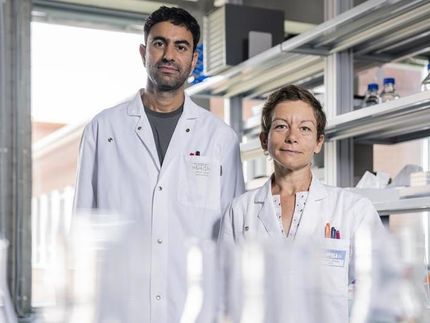With cell-phones against malaria
BGU Researcher Dr. Alberto Bilenca wins grant from the Gates Foundation
Ben-Gurion University of the Negev researcher Alberto Bilenca, PhD, has been awarded a grant from the Bill & Melinda Gates Foundation, one of 88 grants awarded to explore bold and largely unproven ways to improve global health. The grants of US$100,000 each have been made to researchers from 25 countries. This marks the sixth round of funding from Grand Challenges Explorations (GCE), an initiative to help lower the barriers for testing innovative ideas in global health. Projects selected for funding focused on polio eradication and vaccines, cell-phone applications for global health, new approaches to cure HIV, sanitation technologies, and new ideas to improve the health of mothers and newborns.
A member of the Department of Biomedical Engineering, Bilenca’s project uses the principles of optical polarization/speckle and cellphone technology to create a low-cost, portable probe to quickly and accurately diagnose malaria in field settings. Winners were selected from more than 2,500 proposals and approximately 100 countries.
“Our diagnostic probe is portable, simple for use and inexpensive to produce,” notes Bilenca. The prototype probe is based on a standard camera cellphone and a red laser pointer and has already obtained noninvasively finger blood perfusion images in vivo with excellent resolution and contrast within less than a second. In contrast to commercially available malaria tests, this probe will avoid the need for blood collection, therefore maximizing medical safety, patient comfort and test rapidity.
“This probe helps meet the need for diagnostic technologies capable of noninvasive, reliable and rapid diagnosis of malaria in resource-limited areas,” continues Bilenca. “If successful, this technology will provide a simple and robust test of malaria in field settings that will not only aid in the triage of patients to hospitals, but also be of tremendous value in monitoring these patients in the intensive care settings, significantly assisting medical personnel in prompting aggressive management of patients with severe malaria.”
Other news from the department science

Get the life science industry in your inbox
By submitting this form you agree that LUMITOS AG will send you the newsletter(s) selected above by email. Your data will not be passed on to third parties. Your data will be stored and processed in accordance with our data protection regulations. LUMITOS may contact you by email for the purpose of advertising or market and opinion surveys. You can revoke your consent at any time without giving reasons to LUMITOS AG, Ernst-Augustin-Str. 2, 12489 Berlin, Germany or by e-mail at revoke@lumitos.com with effect for the future. In addition, each email contains a link to unsubscribe from the corresponding newsletter.


















































